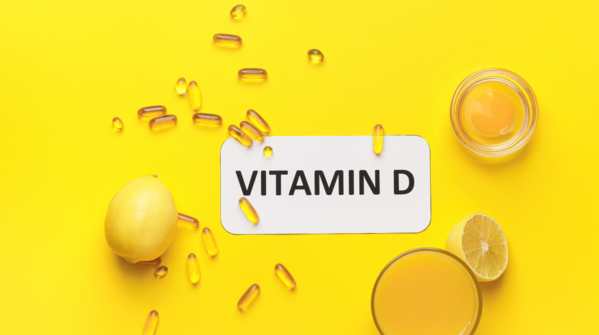- News
- lifestyle
- health-fitness
- health-news
- This is the right time to consume vitamin D supplements for better results
This is the right time to consume vitamin D supplements for better results

This is the right time to consume vitamin D supplements for better results
This is the right time to consume vitamin D supplements for better results

Why timing matters for vitamin D absorption and effectiveness
The timing of vitamin D supplementation is important in determining how efficiently your body will absorb and use it. Knowing when to take it can also contribute greatly to its effectiveness, promoting stronger bones, enhanced immunity, and general health benefits.

Morning is ideal
It is better to take vitamin D supplements in the morning to stay in sync with the natural rhythm of your body. It might improve absorption and prevent interference with melatonin production, which would disrupt sleep if taken toward the end of the evening

Avoid late evenings
Taking vitamin D too close to bedtime can disrupt sleep patterns because it can inhibit melatonin. Taking it in the morning or early afternoon ensures maximum absorption and helps your body's natural sleep-wake cycle work effectively.

Take with food
Vitamin D is fat-soluble, so with meals—most notably, those containing healthy fats—the absorption improves. A healthy breakfast or lunch accompanied by your supplement optimizes its performance and promotes improved overall health results. Because vitamin D is fat-soluble, pairing it with foods such as avocado, nuts, eggs, or olive oil-based foods increases absorption. A balanced diet with these healthy fats improves the supplement's bioavailability and effectiveness.

Regular timing every day
Having your supplement at the same time every day creates a habit and maintains blood levels constant. Regularity enhances efficiency of absorption and guarantees that your body gets a steady supply of this vital nutrient.

Ensure sunlight exposure
Supplements assist, but natural sunlight is still the optimum source of vitamin D. Daily sunlight exposure of 10–30 minutes can assist your body in synthesizing and maximize the supplement's effects, preferably early morning.

Follow the doctor's advice
Always consult a healthcare practitioner before taking supplements. They can advise you on the right dosage according to your health, lifestyle, and existing vitamin D levels, preventing overdosing or ineffective intake habits.(Image: Canva)









